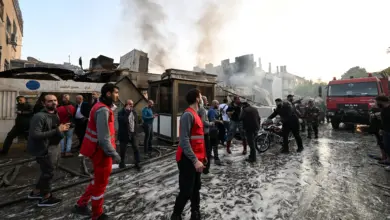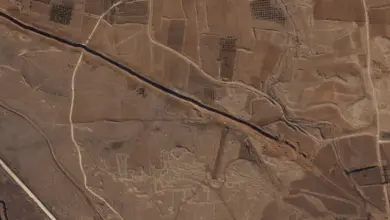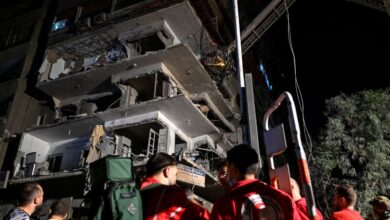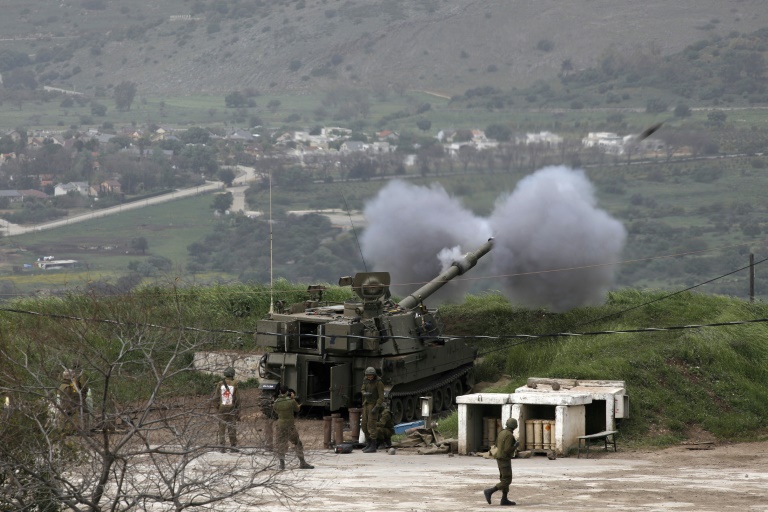AMMAN, Jordan – Loyalist troops commanded by Syrian President Bashar al-Assad's brother surrounded a suburb in the capital Damascus on Wednesday, residents said, part of a campaign to crush growing protests against Assad's rule.
Troops and militiamen also stepped up assaults on residential neighborhoods in the city of Homs, another focal point for the protests where activists say forces killed at least 16 people on Tuesday.
"Hundreds of Fourth Division troops have sealed off all of Harasta's dozen entrances," said a resident of the conservative Damascus suburb of 150,000 people. "They are wearing combat fatigues, helmets, ammunition belts and carrying assault rifles. Water, electricity and phones have been cut."
The resident, who works as an engineer and managed to leave Harasta, told Reuters by telephone that troops had arrested tens of people. Activists say hundreds are arrested across Syria every day, with over 12,000 detained since the uprising against Assad's rule autocratic rule began four months ago.
Street demonstrations have spread from outlying towns and rural areas to major cities, despite the military assaults.
But a heavy security presence in Syria's largest city and commercial hub, Aleppo, and in central districts of Damascus have prevented any large protests.
The Fourth Division, under the direct command of Maher al-Assad, is drawn mostly from Syria's minority Alawite sect, the same as Assad. Together with the Republican Guards, it is among the best equipped units.
FOMENTING SECTARIAN STRIFE
Assad has said the uprising is a foreign conspiracy to sow sectarian strife. His opponents argue that the president has been playing on sectarian fears to maintain Alawite support and keep power for his family, which has ruled Syria for 41 years.
Syria's opposition said Assad would foment sectarian strife to try to stop the uprising from establishing democracy that would respect all groups' rights and identities.
Emadeddin al Rachid, of the opposition National Salvation Congress, said Syrians would not repeat mistakes made in neighboring Iraq, where fighting between Sunni and Shia Muslims broke out after the fall of Saddam Hussein.
"Syria will not follow the path Iraq went down," Rachid told a news conference in Istanbul. "All Syrians are committed to the unity of the Syrian nation."
Since the uprising Assad has become increasingly isolated internationally, but Iran's Shia clerical rulers have maintained their support, to the disquiet of Syria's majority Sunnis.
The West had sought to improve relations with Assad after Israel failed to defeat his ally Hizbullah in a 2006 war and after Hizbullah used force to defeat Western-backed Sunni factions in Beirut. Turkey also backed Assad in his efforts to seek peace with Israel.
But diplomatic pressure increased on Assad this week after Qatar, previously a supporter, shut its embassy in Damascus and the European Union said it was considering tougher sanctions.
Diplomats say Assad has a core of 30,000 troops from his minority Alawite sect. But the killings – human rights organisations say Assad's forces have killed more than 1400 civilians since the uprising – is prompting some defections among the mostly Sunni rank and file of the 200,000 man army.
The casualties in Homs on Tuesday have concentrated in Khalidiya, a district inhabited by Sunni tribes from rural Homs, which is near the district of Nozha, where most of the Alawite dominated security forces and militiamen live.
Homs, the hometown of Assad's Sunni wife Asma, has seen an influx of Alawites in the last 20 years as the community tightened its grip on security and public jobs.
"Khalidiya is totally besieged by the military. We are cut off from the rest of Homs as if we are a separate country," said one resident, who gave his name as Abdallah.




